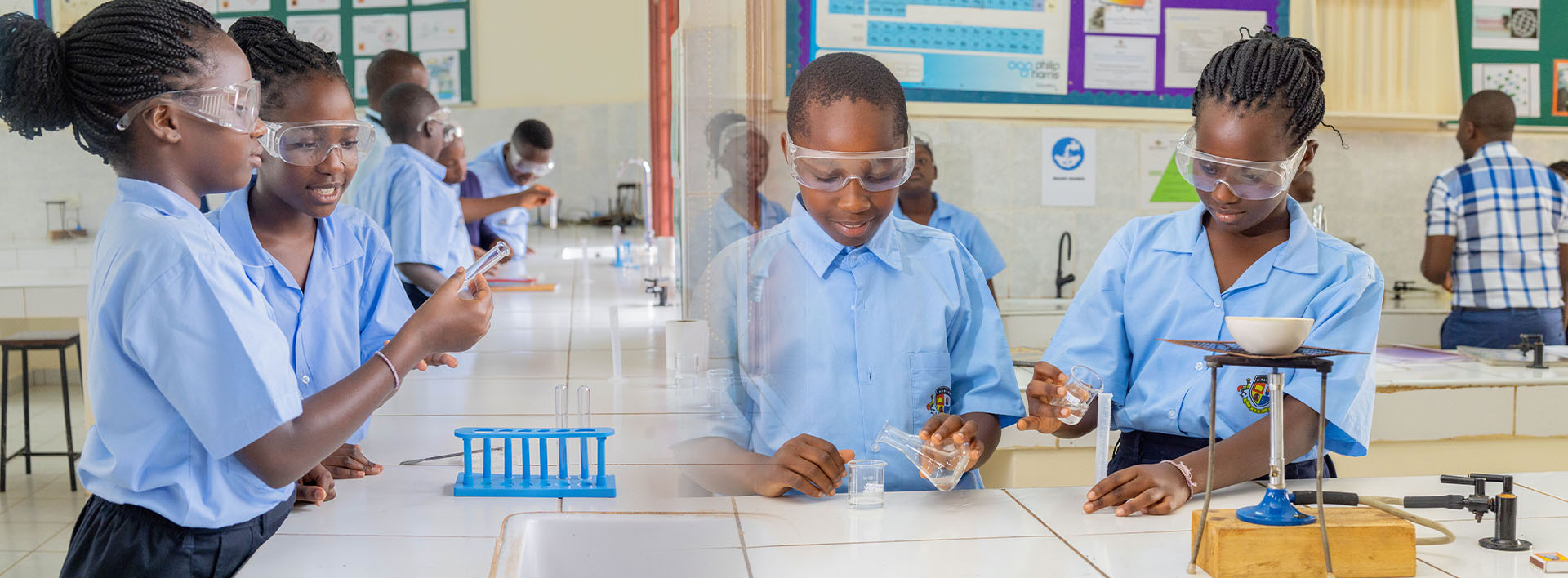
At Key Stage 3 (Years 7, 8 and 9), we put strong emphasis on the core subjects of English, Mathematics and Science.
English is taught mainly as a first language, with a focus on use of language through speaking, listening and the study of both fictional and non-fictional texts. In each year we have a significant number of students for whom English is an additional language and we have two full-time teachers to cater for the needs of these students.
Science at Key Stage 3 is taught as a single subject, integrating components of Biology, Chemistry and Physics and following the Spotlight Science course. In Mathematics, the course focuses very much on developing skills in numeracy, with the emphasis being on applying mathematical principles to solve problems. These three core subjects are all assessed formally at the end of Year 9 in preparation for IGCSE.
Together with the core subjects, Key Stage 3 covers a broad range of subjects. All students take a Modern Foreign Language, either French or German, whilst ICT is compulsory right the way through to Year 11. Years 7-9 also take History, Geography and four essentially practical subjects, Drama, Music, Art and Physical Education. Download Year 9 Option Booklet
At the end of year 9 pupils are not only assessed through our Cambridge based internal assessment process they also sit the Cambridge Checkpoint exams in English; Maths and Science.
Cambridge Checkpoint is an intermediary stage for the International General Certificate of Secondary Education (IGCSE) students in which they build on their understanding and skills in English, Science and Mathematics. This sets an excellent preparatory ground for them to take on higher Cambridge qualification including the IGCSE. The tests are designed with international learners in mind so as to suit students of all cultural and language backgrounds. The tests are assessed by CIE that provides schools with an international yardstick to gauge student performance.
As in Key Stage 4, students who have difficulties with aspects of their learning are given additional assistance through the Learning Support department. There are also timetabled lessons in Personal Social and Health Education (PSHE) and Citizenship, which deal with aspects of personal development not necessarily covered in the formal curriculum.